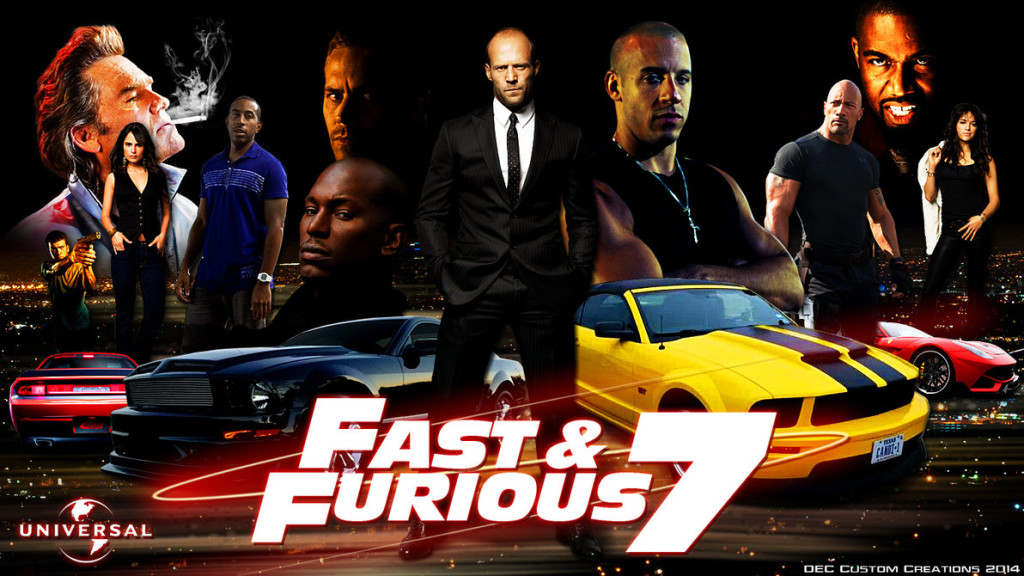“Whether you like it or not, in moving from $1.00 to $1 million, you’re definitely going to make mistakes. My Son, don’t be scared of making mistakes” has been amongst the best tips my father gave me about business. If dad is reading this post, please know it’s not always true. Some mistakes should only be made once and not by you. The truth is, when you find someone successful, you can easily model them and get success much faster than if you go it alone. And that’s the purpose of this blog. None of what you read here is based on theory. This is practical stuff that will get you frizzled and frazzled as you kick start your journey to business success. Remember, all mushroom is eatable but some you can only eat once. These mistakes have been made before, do me a favour of not repeating them. I have used the metaphor ‘my fast and furious 7 business mistakes because they can lead to business destruction quickly and in a furious way.
1. Entering into PMC Contacts
One of the important courses you will study in any Zimbabwean business school is commercial or business law. An important topic in this course is the Law of Contract. Iam not going to take you through a business lecture but will go right straight to my point. A PMC contract is a self-coined term for verbal contracts which means PaMuromo Chete in my native. PaMuromo Chete (PMC) contracts usually happen because of trusting the other party too much that one feels there is no need to put any agreements to paper. This may also be caused by the fact that start-ups have little amounts involved and the profits are so low to review a person’s true character. The issue of who owns the largest stake in the business may be silent. Things to do with share capital are not written anywhere save for what is on the initial registration documents if any. Additional capital injection is not formalized. If it’s a partnership, no partnership agreement exists. Goods supplied on credit have no credit agreement binding the suppliers etc. Everything is PMC. However, this is not the greatest danger from these forms of contracts. Their greatest danger is they do not offer any exit strategy or escape route to the business partners. The divorce of the partners is often violent and usually leave both incapacitated to continues trading. The Zimbabwe music industry is the greatest casualty for repeatedly making this mistakes. Perhaps the only lesson we learn from history is we don’t learn anything from history.
2. Not including an exit strategy
When I was a little boy, I used to travel with my father a lot. As any normal kid, whenever we took a bus ride, I liked to watch the outside world and preferred the window. But my dad took to the seat with the very big window which doesn’t open but always had a red inscription, “In case of emergency, kick out panel”. I didn’t even know what that statement meant till he told me that whenever you get into any building or environment, seat closer to the nearest exit. If you are in a partnership agreement, make sure it has a clearly marked ‘emergency exit panel’ which says how the business capital, tangibles and intangibles will be split. PMC contracts usually result in fights over trivialities and sometimes the person who contributed the most may end up losing everything. Familiarize with non-disclosure agreements amongst other form of contracts. Fast forward to today, it seems like the new make of buses have a new wording. ‘All window in case of emergency kick out panel’.
You will need a risk expert to show you all the areas of business you need to put an emergency exit panel. It’s not only physical assets but non tangibles like patents, goodwill and research findings. If you are hiring a developer, does the code belong to the developer, yourself or all of you? What happens if you fall out of favour with each other a month after the launch of the company? How will you break down the java script between partners? LOL!
3. The winner takes it all and the looser…
…It’s none of your business. This is a line from the TV series The Blacklist Season 2, Episode 15. Mr. Reddington was asking about the outcome of a business transaction and this is the response he got. Most start-ups make this common mistake which ends up stifling their potential. I have been invited to help a couple of start-ups raise capital, brainstorm on ideas, setup structures and validate their ideas. Start-ups usually run under a “We are broke” alias. They want help at no cost. They want someone to invest money into their (risky) venture but get no stake in the end. They want to borrow but not share ownership stakes with the Investors so that when the business succeed: Winner takes all! They never got the funding they needed, at least in Zimbabwe. Iam yet to find an Investor willing to put his money in a green business and asked to have no say.
4. Not having Insurance plans
I know your perception of Insurance but you really need to read this because it might save your business. I have always argued that, the moment you set to start a business make sure you have at least three Insurance plans in place. These should be:
· Funeral policy (and a life policy)
· Healthy Insurance
· Assets Policy
You don’t want to hear that your relative passed away when you have just received a cheque from your first biggest deal. You don’t want your child taken to ICU too whilst getting ready to pay for a shipment. It may destroy your start-up. Cushion your business finances with a personal funeral plan. Moreover, because you are now working for yourself, you need to ensure that in the event you die (your start-up can’t compensate you) your family is left with something. Moreover, you don’t want the vehicle you invested into the company to be written off whilst it’s with the driver. If your business is dependent on the vehicle, then your business is thus affected. Insure your assets.
5. Romanticism
When I started my first business I made the mistake of trying to date all the women business stakeholders who came my way. What a big mistake. One of the first business lessons I learnt is ‘a company is a legal personae.’ I later learnt that when people fall for your business model it doesn’t mean they have fallen for you. I quickly forgave myself back then because I was still in my teens. Now I meet beautiful and attractive women who are so much in-love with what I do but I know I met them through the business and they are in love with the business and not me. I know where to draw the lines. Just hinting on the possibility of a romantic relationship to a business client may end even there romantic relationship with your business or product. Don’t do it! This mainly affects start-ups driven by men.
6. Business polygamy
When I started my first venture as a teenager, I wanted to be a serial entrepreneur. Not because of anything but because the term made me look like a tough guy. I had read profiles of serial entrepreneurs and had not hesitated to make them my mentors. I don’t know which book you have read but its the wrong strategy for a start-up. Resist business polygamy and embrace monogamy. Business is nice and boring. Find one strategy that works, then do it again and again and again. Diversify after you are well established and rooted in a core product. Make yourself a household brand before you think of venturing into another industry. I will talk about multiple streams of income in another article and how to multiple stream your business idea.
7. Being limited by your skills
I have met a few individuals whose boldness baffles me. I met one guys at networking event last month, a Founding Director of a technology company in Harare. I asked him this simple question. “Do you have an IT background or have you studied IT at school?” He looked at me and said. “I don’t need to know IT to start an IT business.” Looking at Arsene Wenger, the Manager of Arsenal football club, he played little football. He is a professor in Economics not football for crying out loud. Jose Mourinho, is another good example. No experience as a player but a top dog. Do not let your own personal skills limit the opportunities you can exploit. Most of the online entrepreneurs I know do not know any coding language. The list of examples is endless. From Sepp Blatter to Seth Godin. You can always outsource the skills you don’t have. Alternatively you can build a start-up team based on your skills limitations.
These are not the only mistakes that start-ups make but I just chose to focus on the ones I have encountered in my consulting journey. Remember to do good stuff and as I sign off I wish you success.
Watch out for ‘My fast and furious 7 Income streams next week’





very helpful article. thank you
I found this to be very profound indeed.. am in the process of doing a PMC and also have just seen the In Case of Emergency Kick Out Panel sign… very informative thanks
I strongly agree with number 5 and 6 My wise mother always says when you start looking at the dresses, the business will fail and that has proven true for all the startups that I have seen fail. The guy has 50 women at getting supported by the business.
A lot of other young entrepreneurs diversify their businesses before anyone knows who they are. That has been costly for me and I am not the first nor the last unless if people read this article and change their strategy.
Great article. Been through the PMCs before. My biggest mistake was i thought that i should seize “the opportunity”. After a few burns i realized that my success also depends on saying NO to some opportunities because everything comes at a price even “the opportunity”.
“The value of a thing sometimes does not lie in that which one attains by it, but in what one pays for it — what it costs us.” – Friedrich Nietzsche
When I started my first business I made the mistake of trying to date all the women business stakeholders who came my way. What a big mistake. One of the first business lessons I learnt is ‘a company is a legal personae.’ I later learnt that when people fall for your business model it doesn’t mean they have fallen for you. I quickly forgave myself back then because I was still in my teens.
this l strongly agree with the worst mistake one can make is mix pleasure and business or start to develop feelings for people you do business with because you end up making biased decisions which is not good for business.
i am glad Mr Writer you quickly realised your mistake before you had sunk yourself in the mud.
kkkkkkkkkkkkkkkkkkkkkkkkkkkkkkkkkkkk ha Mr simba ha i have not finished to read this articles and i am aready in stiches .thank you simba for this great wisdom ,you will never now how much i value your artilces.keep up the good work.I am asking to permission to publish this articles in my business magazine .please sent me your photo as well as your small autobio.
hi Ken…this is in order. hope you are well
Brilliant. Insightful.
I have learned.